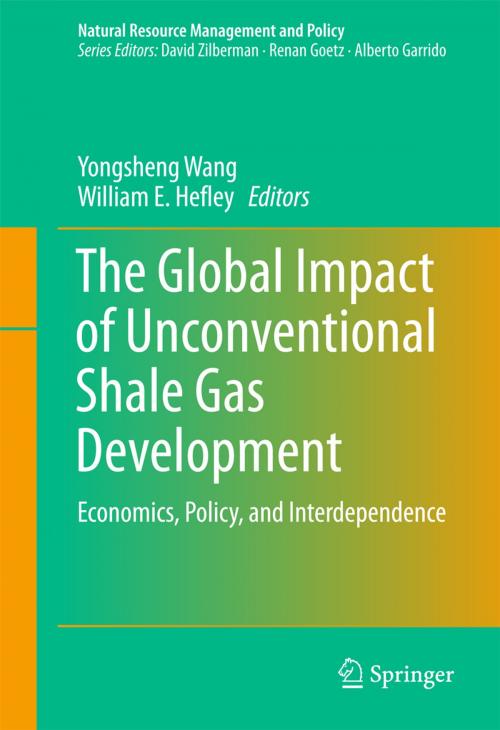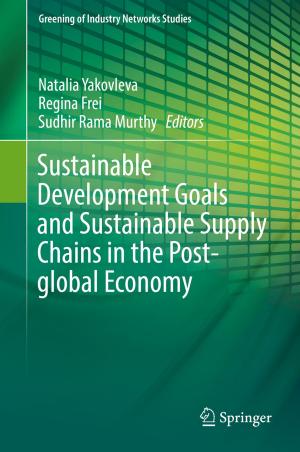The Global Impact of Unconventional Shale Gas Development
Economics, Policy, and Interdependence
Nonfiction, Social & Cultural Studies, Political Science, Politics, Economic Policy, Business & Finance, Economics| Author: | ISBN: | 9783319316802 | |
| Publisher: | Springer International Publishing | Publication: | July 15, 2016 |
| Imprint: | Springer | Language: | English |
| Author: | |
| ISBN: | 9783319316802 |
| Publisher: | Springer International Publishing |
| Publication: | July 15, 2016 |
| Imprint: | Springer |
| Language: | English |
This book discusses the economic, political, and environmental issues surrounding the international exploration and exploitation of conventional and unconventional natural gas. Shale gas development in recent years has changed the energy discussion in the US as existing reserves of natural gas coupled with horizontal drilling and hydraulic fracturing make exploitation of these reserves economically feasible; the discussion is quickly becoming international in scope. The potential expansion of natural gas development impacts many regions of the globe and spans multiple perspectives. In a volatile international climate, one of intense geopolitical conflict between Russia and the West, economic slowdowns in Europe and China, military conflicts in the Middle East and northern Africa, and widening income disparity in the U.S., a relatively inexpensive and plentiful energy source like shale gas could play a key role in mitigating such conflicts. In an energy interdependent global community, however, multiple factors such as oil prices, differing rates of exploration, environmental concerns, strategic initiatives, institutional changes, legal and regulatory issues, and actions of the nations involved all have the potential to influence future outcomes. This book discusses each of these in turn, detailing the issues most prevalent in each geographical area. The first volume to provide a comprehensive global view of the impacts of shale gas development, this book fills a gap in the current research literature, providing vital information for the scholarly community and the public alike. This book will be of interest to researchers and students of economics, energy policy, public administration, and international relations as well as policy makers and residents of the regions that are experiencing shale gas development.
This book discusses the economic, political, and environmental issues surrounding the international exploration and exploitation of conventional and unconventional natural gas. Shale gas development in recent years has changed the energy discussion in the US as existing reserves of natural gas coupled with horizontal drilling and hydraulic fracturing make exploitation of these reserves economically feasible; the discussion is quickly becoming international in scope. The potential expansion of natural gas development impacts many regions of the globe and spans multiple perspectives. In a volatile international climate, one of intense geopolitical conflict between Russia and the West, economic slowdowns in Europe and China, military conflicts in the Middle East and northern Africa, and widening income disparity in the U.S., a relatively inexpensive and plentiful energy source like shale gas could play a key role in mitigating such conflicts. In an energy interdependent global community, however, multiple factors such as oil prices, differing rates of exploration, environmental concerns, strategic initiatives, institutional changes, legal and regulatory issues, and actions of the nations involved all have the potential to influence future outcomes. This book discusses each of these in turn, detailing the issues most prevalent in each geographical area. The first volume to provide a comprehensive global view of the impacts of shale gas development, this book fills a gap in the current research literature, providing vital information for the scholarly community and the public alike. This book will be of interest to researchers and students of economics, energy policy, public administration, and international relations as well as policy makers and residents of the regions that are experiencing shale gas development.















